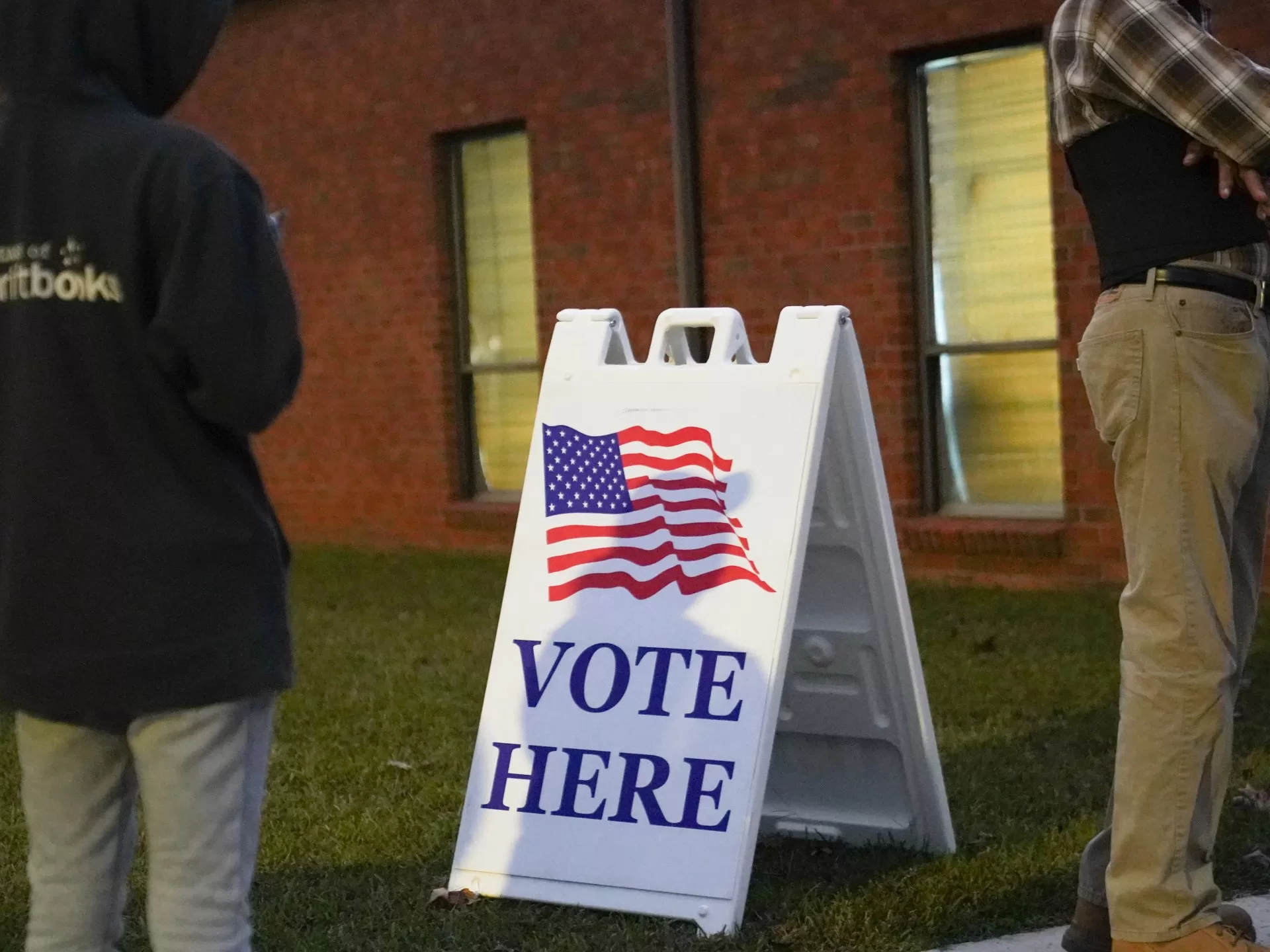Moscow has described as “malicious slander” reports that fake bomb threats directed at polling locations in four battleground states in the United States election – Georgia, Michigan, Arizona and Wisconsin – originated from Russian email domains and were part of an interference operation.
Several polling sites targeted by the scares in Georgia were briefly evacuated on Tuesday.
“None of the threats have been determined to be credible thus far,” the US’s Federal Bureau of Investigation (FBI) said in a statement, noting that many of the hoax bomb warnings “appear to originate from Russian email domains”.
An FBI official said that Georgia received more than two dozen threats, most of which occurred in Fulton County, which encompasses much of Atlanta, a Democratic Party stronghold.
The threats led to two polling locations in Fulton County, Georgia, being evacuated. Both locations re-opened after about 30 minutes, officials said, and the county was seeking a court order to extend the location’s voting hours past the state-wide 7pm (00:00 GMT) deadline for closing.
The FBI is aware of bomb threats to polling locations in several states, many of which appear to originate from Russian email domains. None of the threats have been determined to be credible thus far. https://t.co/j3YfajVK1m
— FBI (@FBI) November 5, 2024
About an hour before polls were to close, officials in DeKalb County, Georgia, said they received bomb threats against five polling places.
Officials in the overwhelmingly Democratic suburb said voting had been suspended at the locations until police confirmed there were no bombs. A court order would be sought to extend voting, which is routine in Georgia when a polling place is disrupted, officials said.
Bomb threats were also sent to two polling locations in Wisconsin’s state capital Madison, but did not disrupt voting, the head of the Wisconsin Elections Commission, Ann Jacobs said.
A spokesperson for Jocelyn Benson, Michigan’s Democratic secretary of state, said there had been reports of bomb threats at several polling locations, but none was credible. Benson’s office had been notified that the threats may be tied to Russia, the spokesperson said.
Adrian Fontes, a Democrat and Arizona’s secretary of state, the chief election official in the swing state, said four fake bomb threats had also been delivered to polling sites in Navajo County, Arizona.
Georgia’s Republican Secretary of State Brad Raffensperger laid the blame directly on Russia.
“They’re up to mischief, it seems. They don’t want us to have a smooth, fair and accurate election, and if they can get us to fight among ourselves, they can count that as a victory,” Raffensperger told reporters.
The Russian Embassy in Washington, DC said insinuations about Russian interference in the election were “malicious slander”.
“We would like to emphasise that Russia has not interfered and does not interfere in the internal affairs of other countries, including the United States. As President Vladimir Putin has repeatedly stressed, we respect the will of the American people,” the embassy said.
US intelligence officials have accused Russia of interfering in previous US presidential elections, especially through cyber-operations in the 2016 race which the current Republican presidential candidate, Donald Trump, won against Democratic candidate Hillary Clinton.
The US later indicted 12 Russian military intelligence officers for their alleged roles in interfering in the 2016 election.
A senior US cyber official said her agency had not seen any significant incidents on this Election Day.
Cait Conley, of the US Cybersecurity and Infrastructure Security Agency, told reporters there had been little evidence of significant disruption to election infrastructure.
“At this point, we are not currently tracking any national level significant incidents impacting security of our election infrastructure,” said Conley, whose agency is responsible for protecting critical American infrastructure, including election infrastructure.
